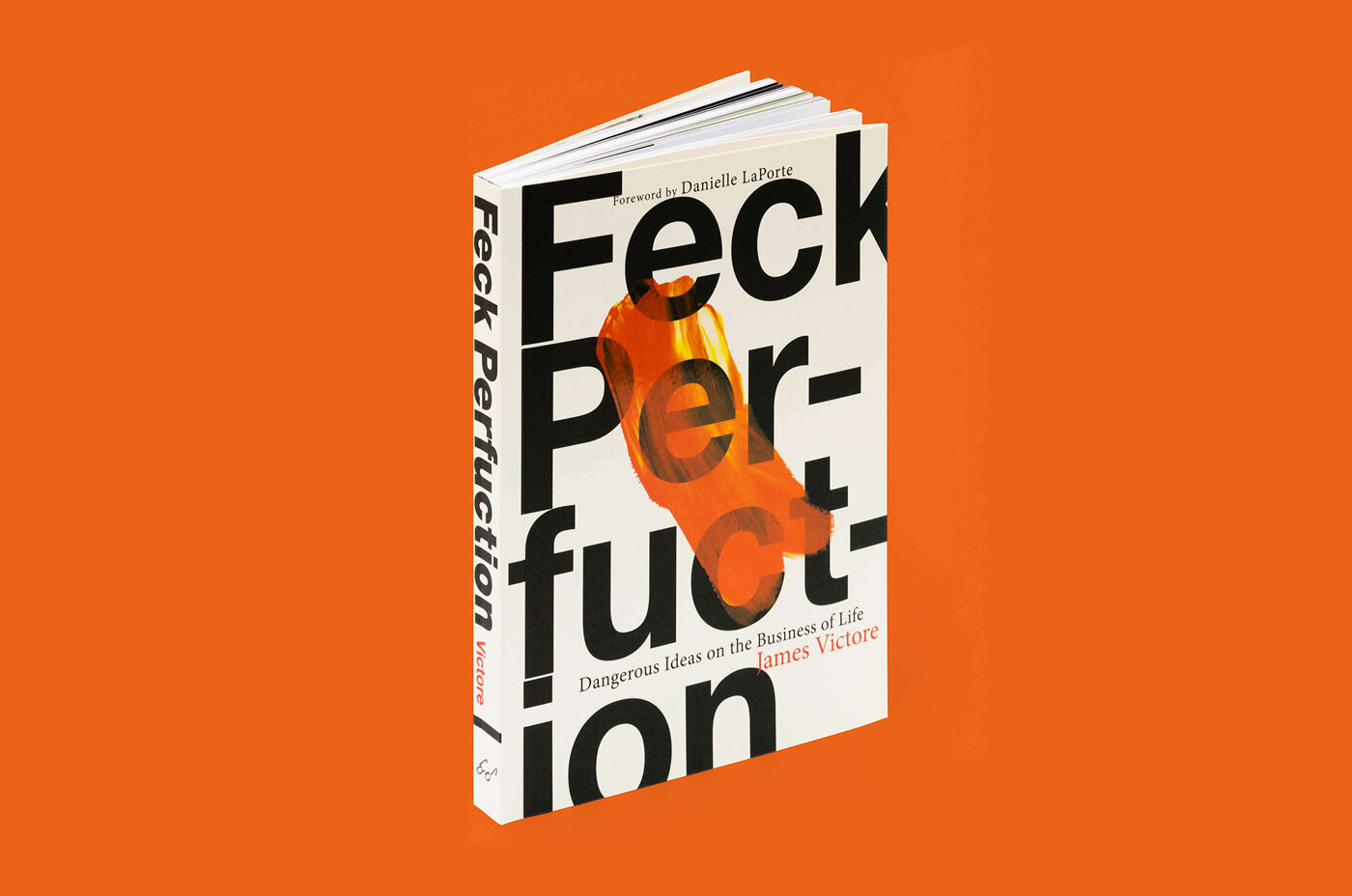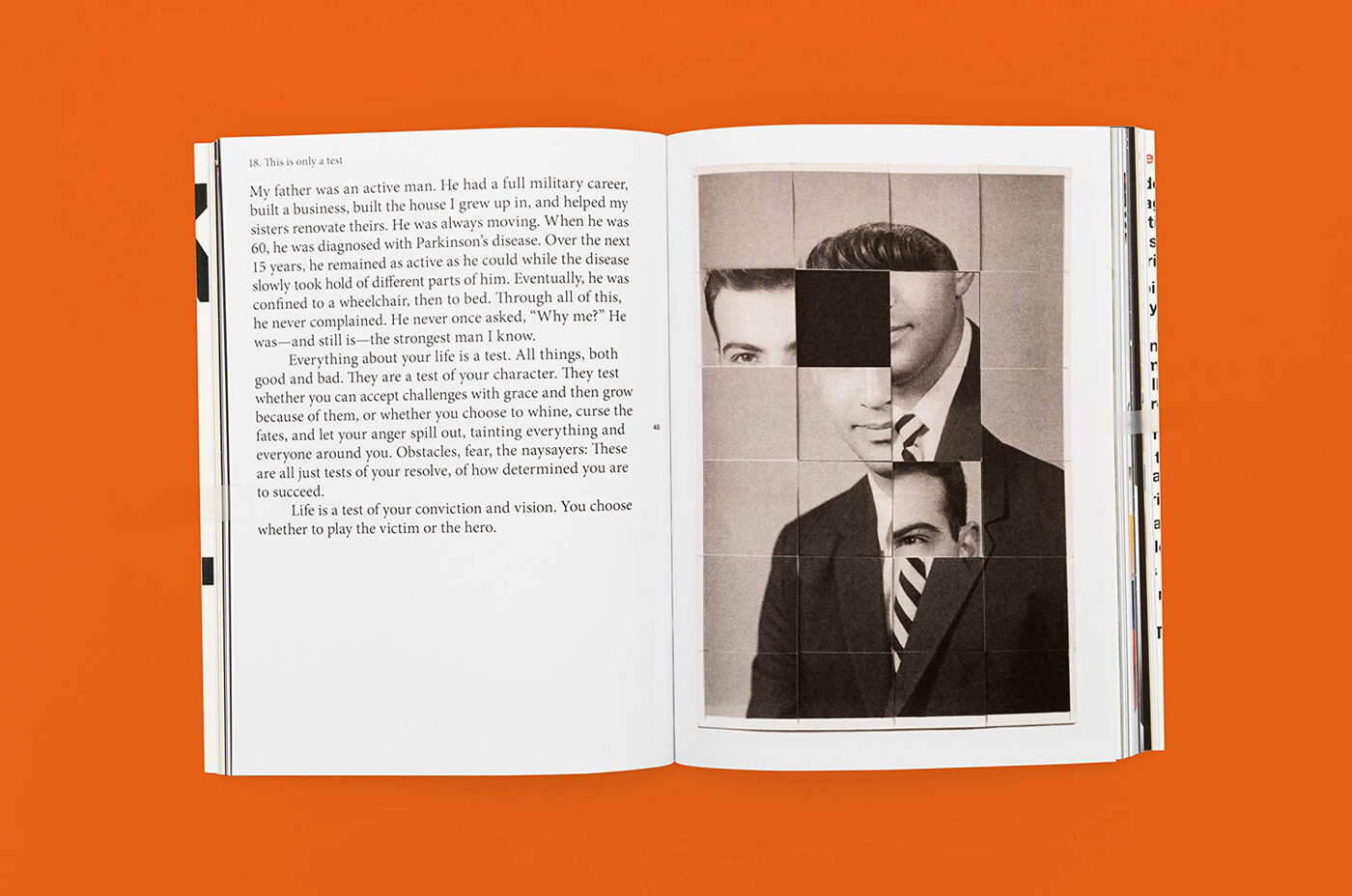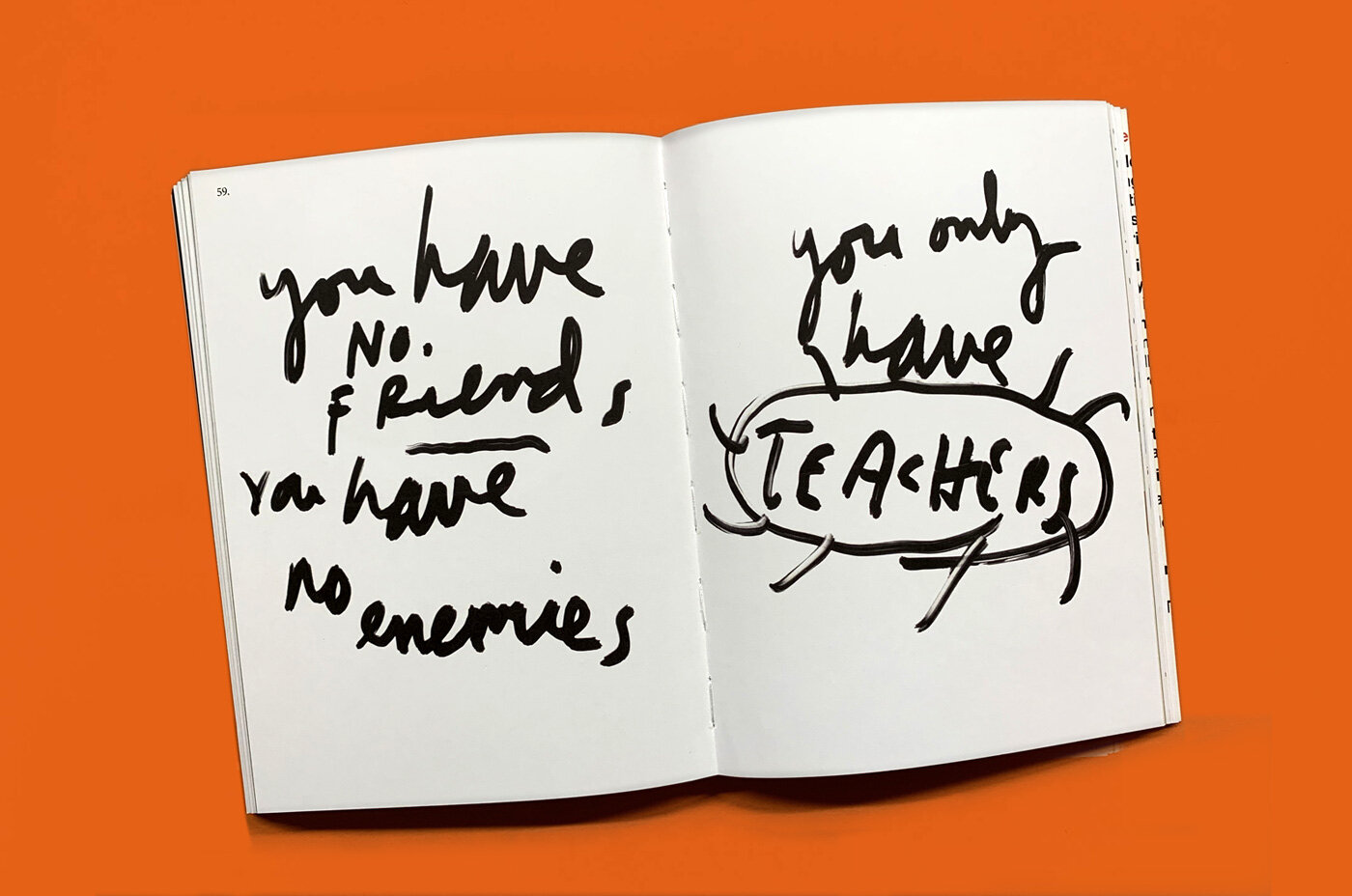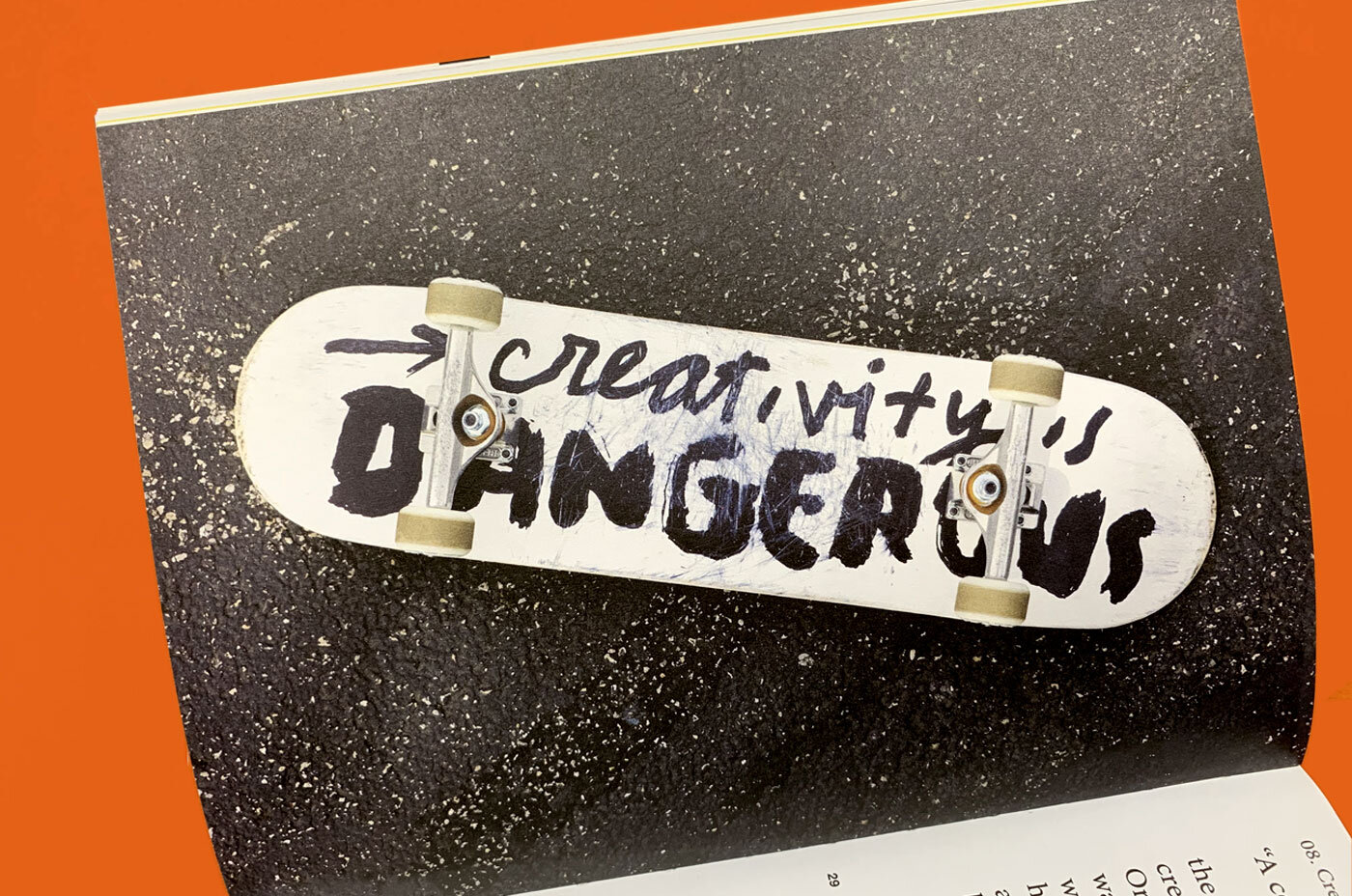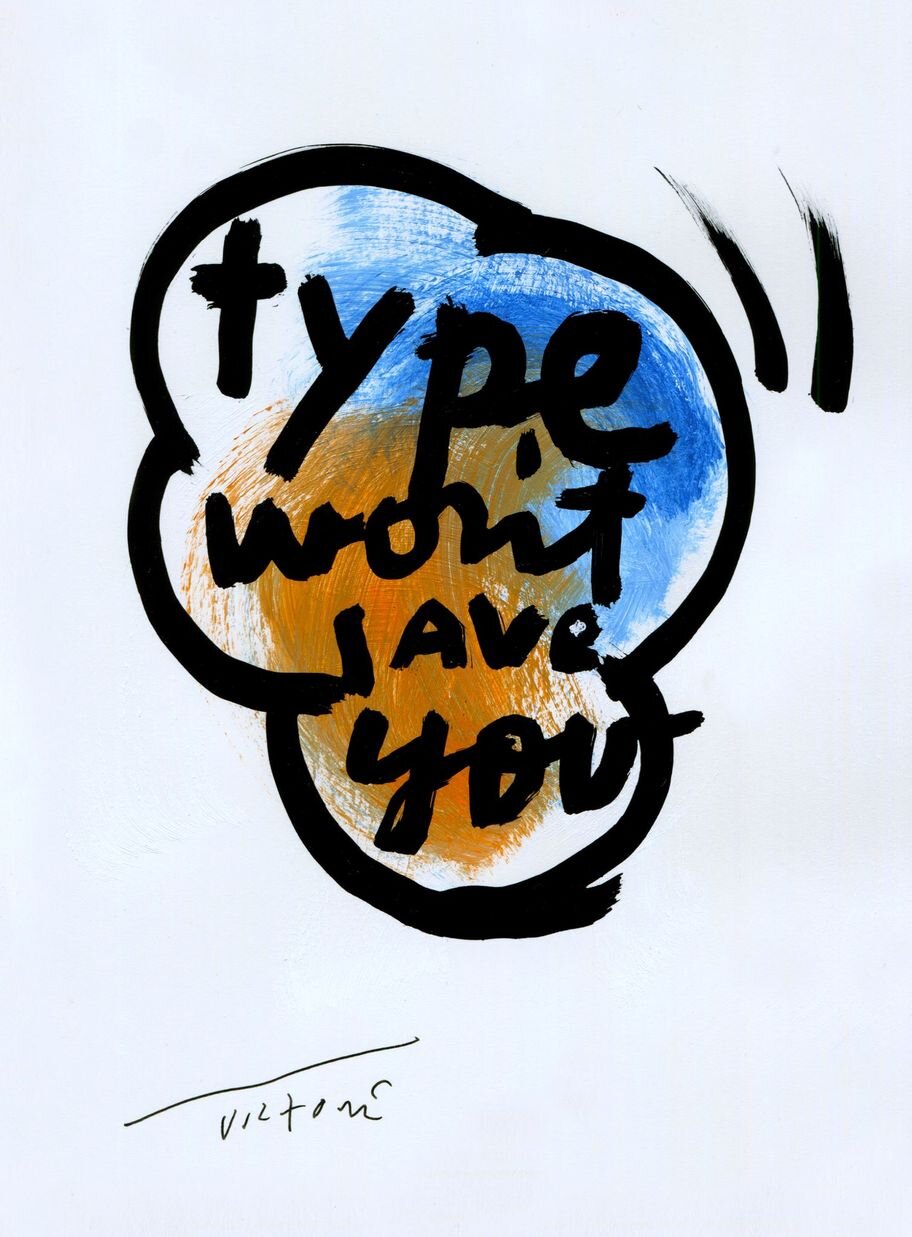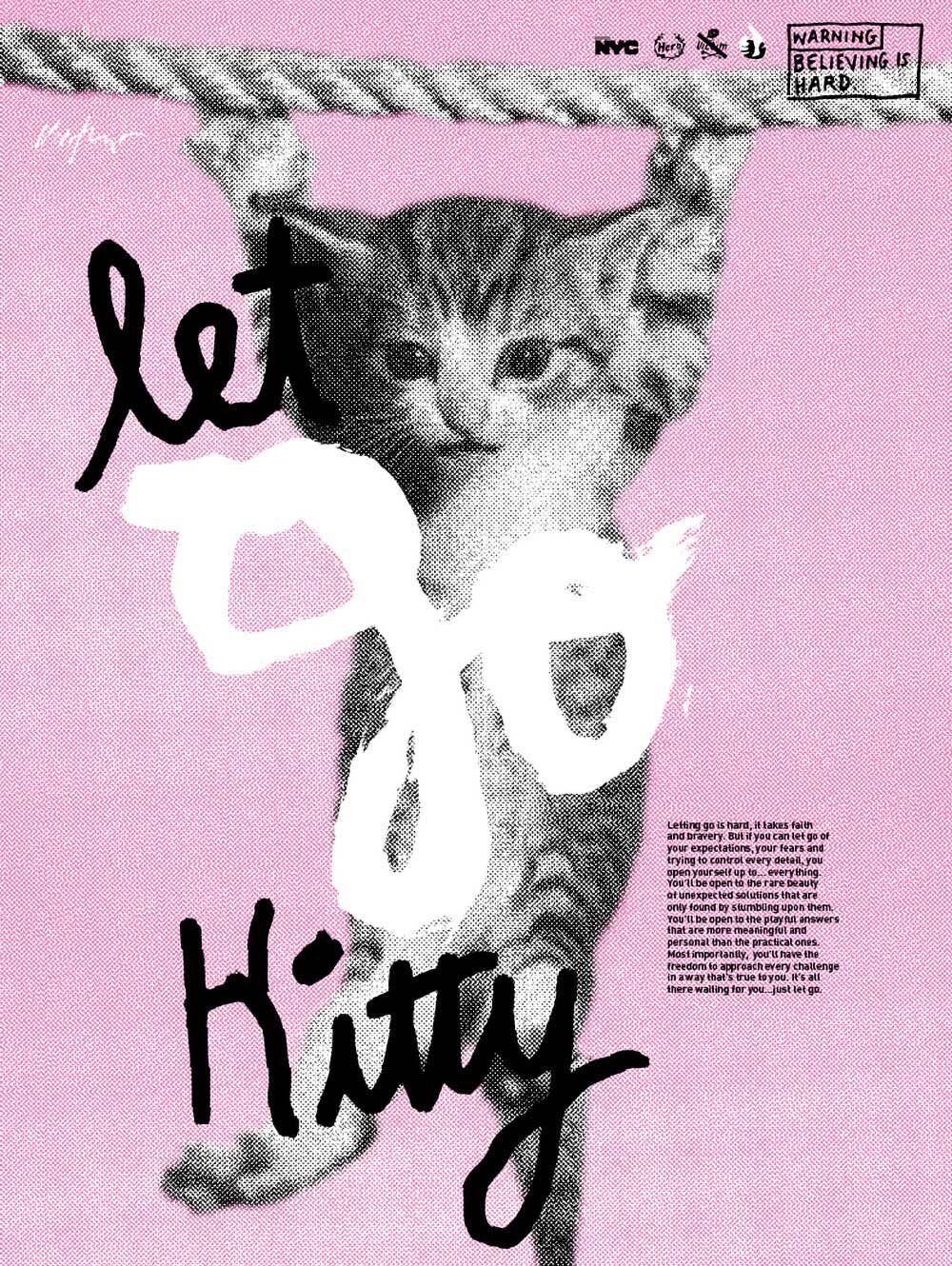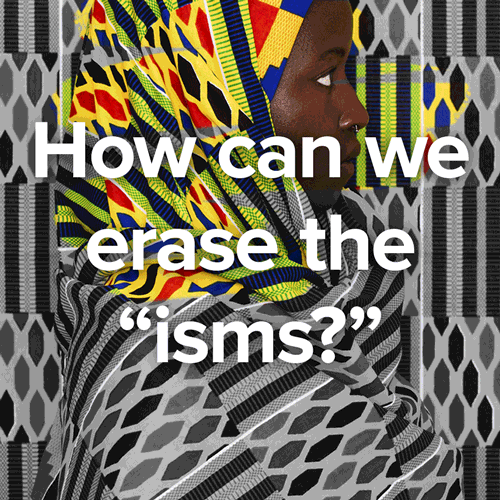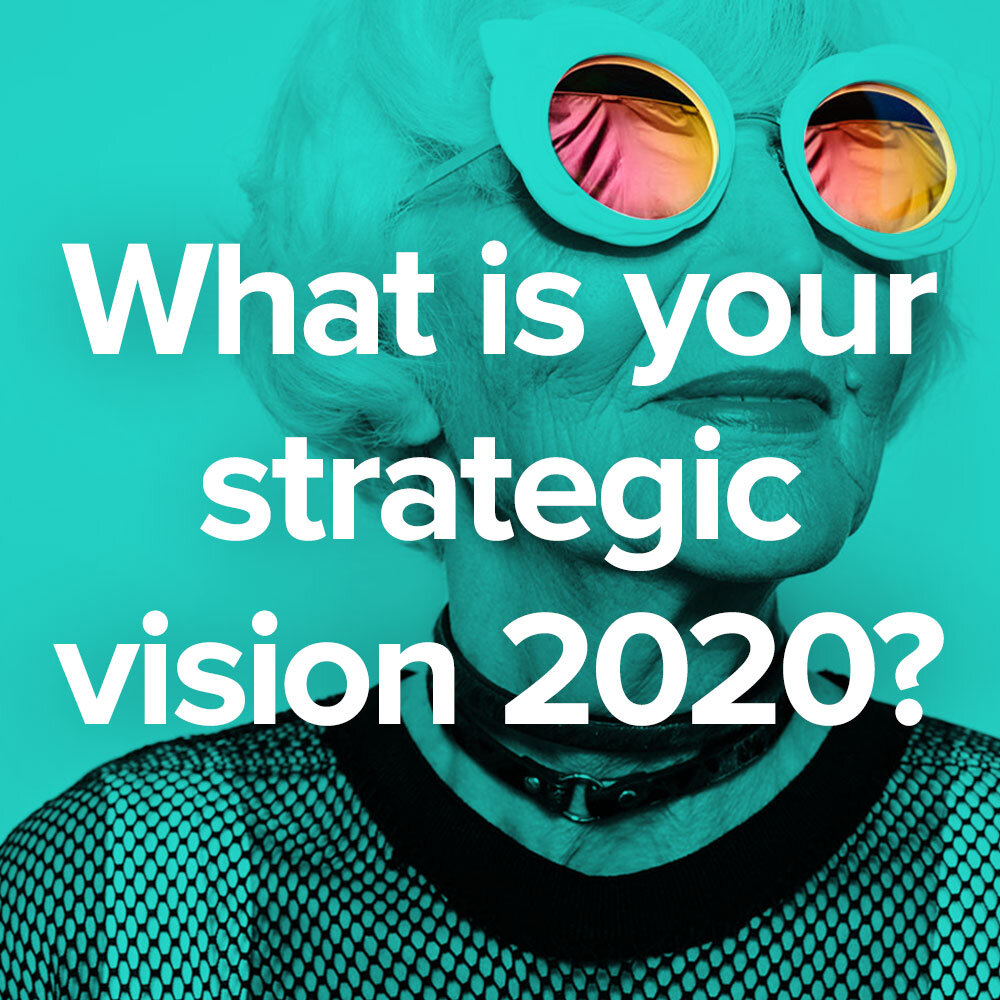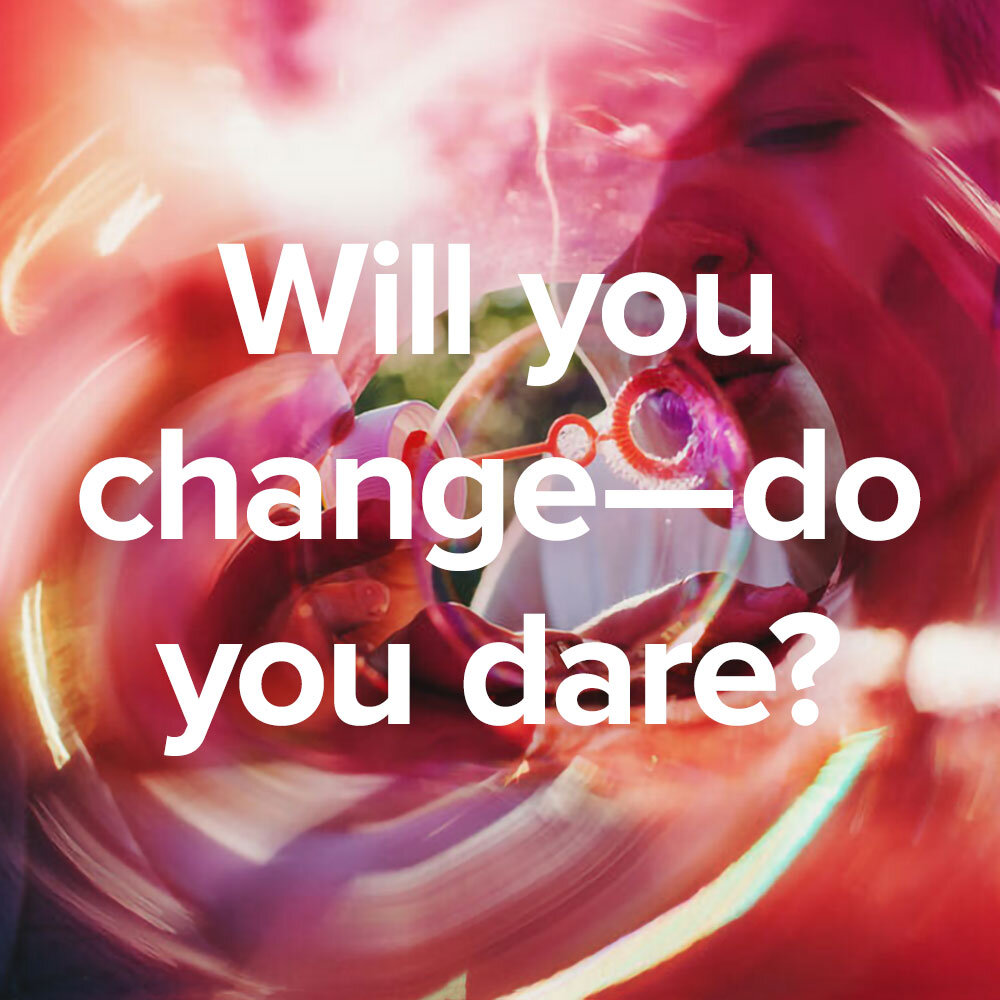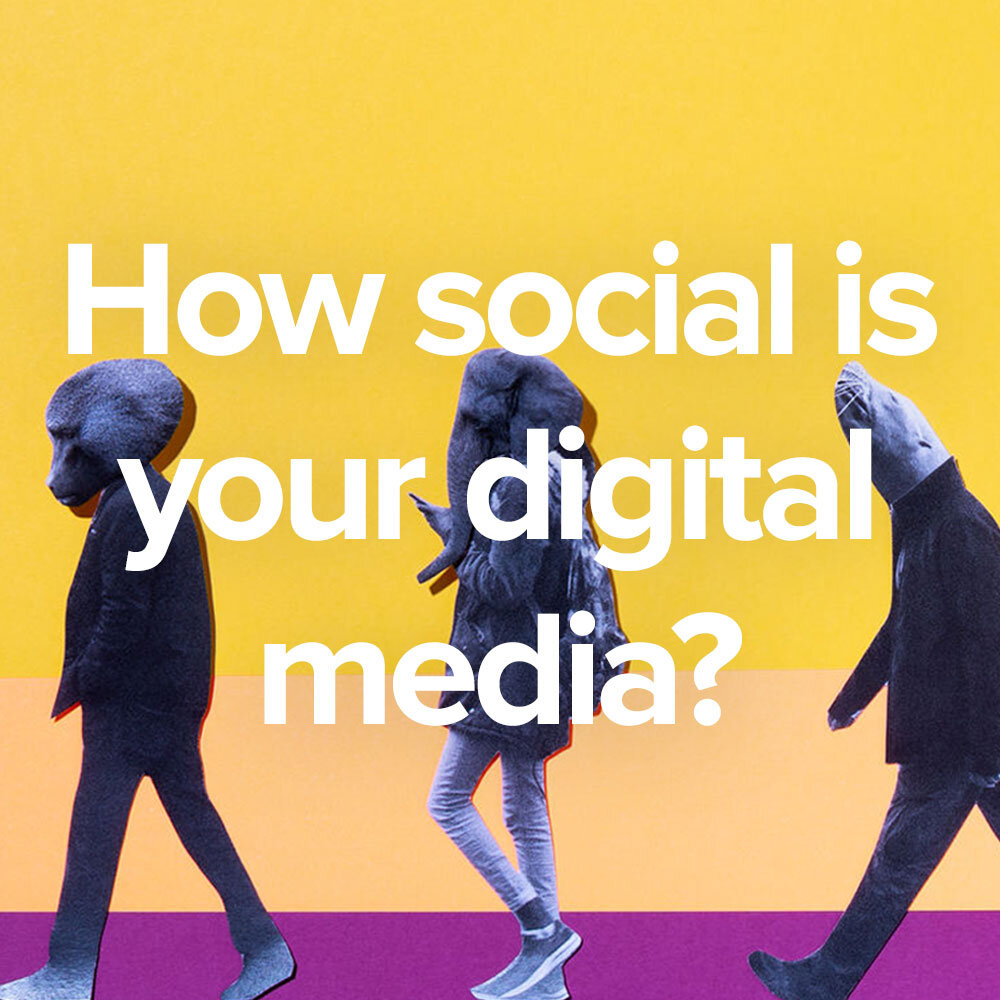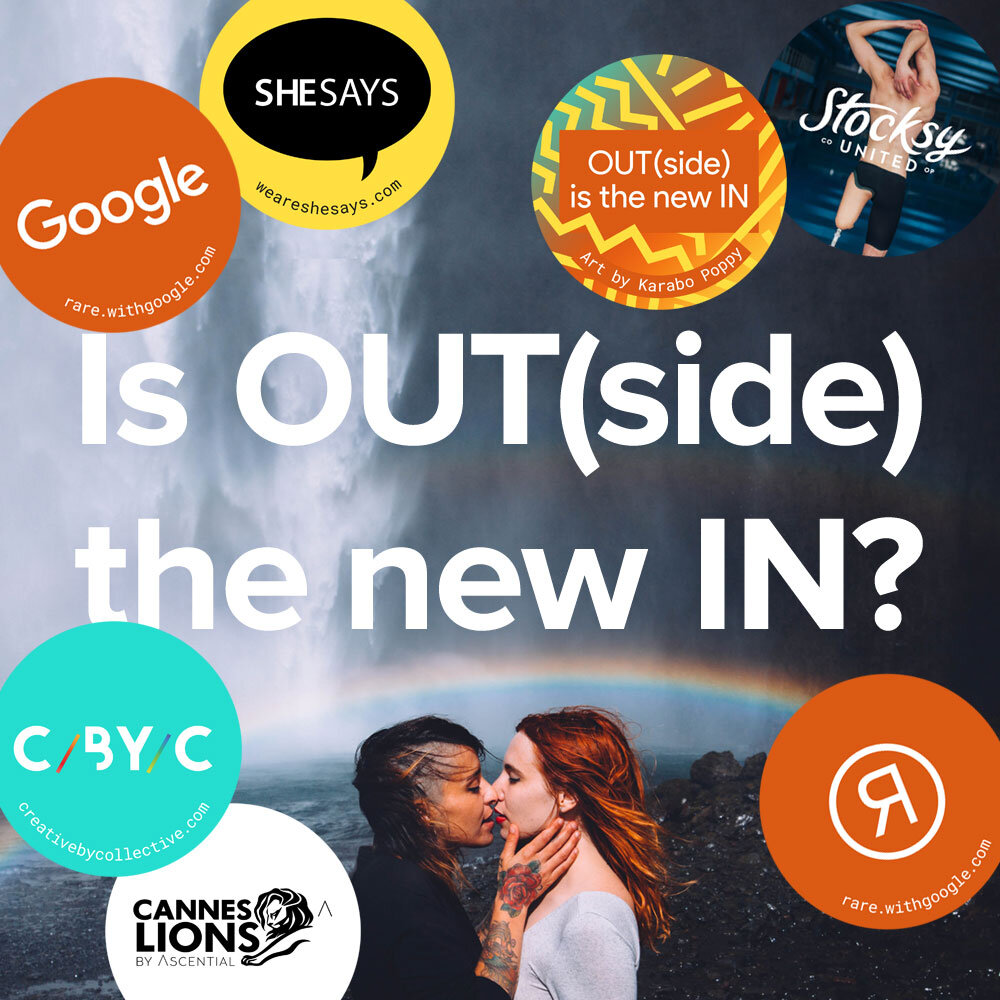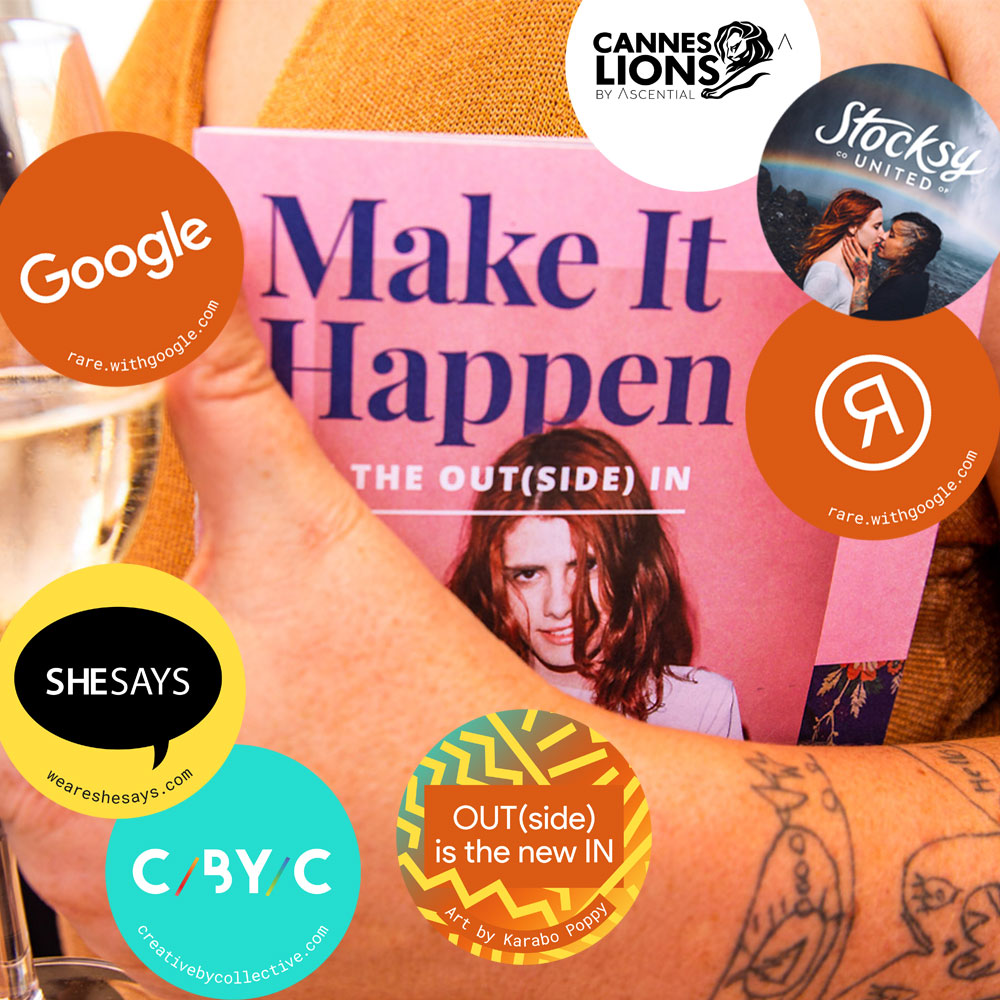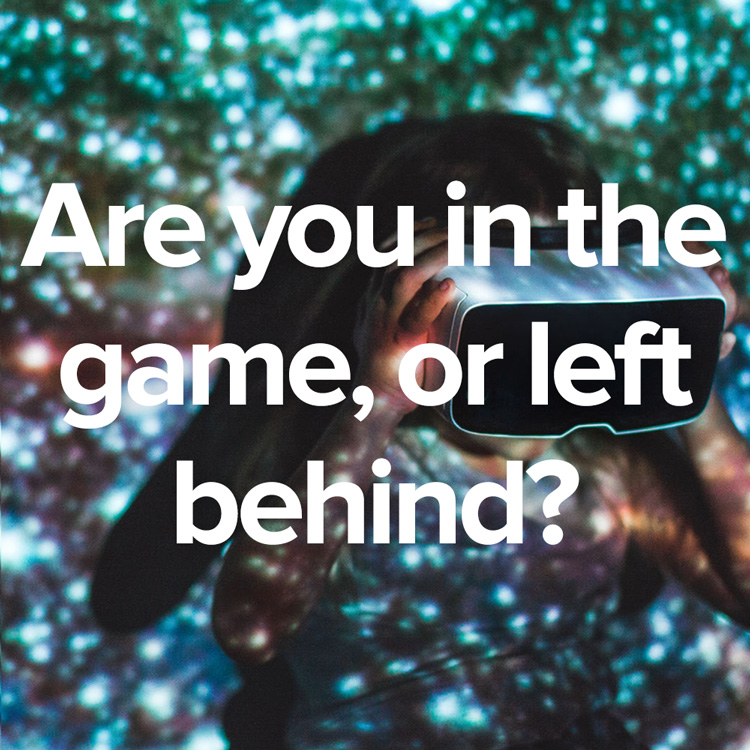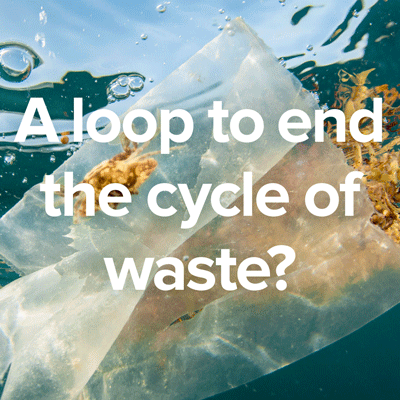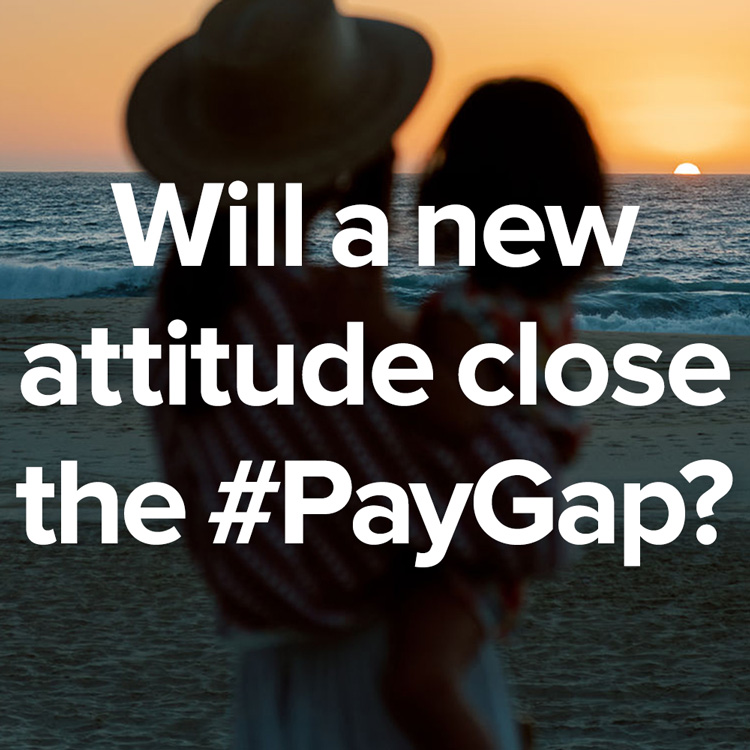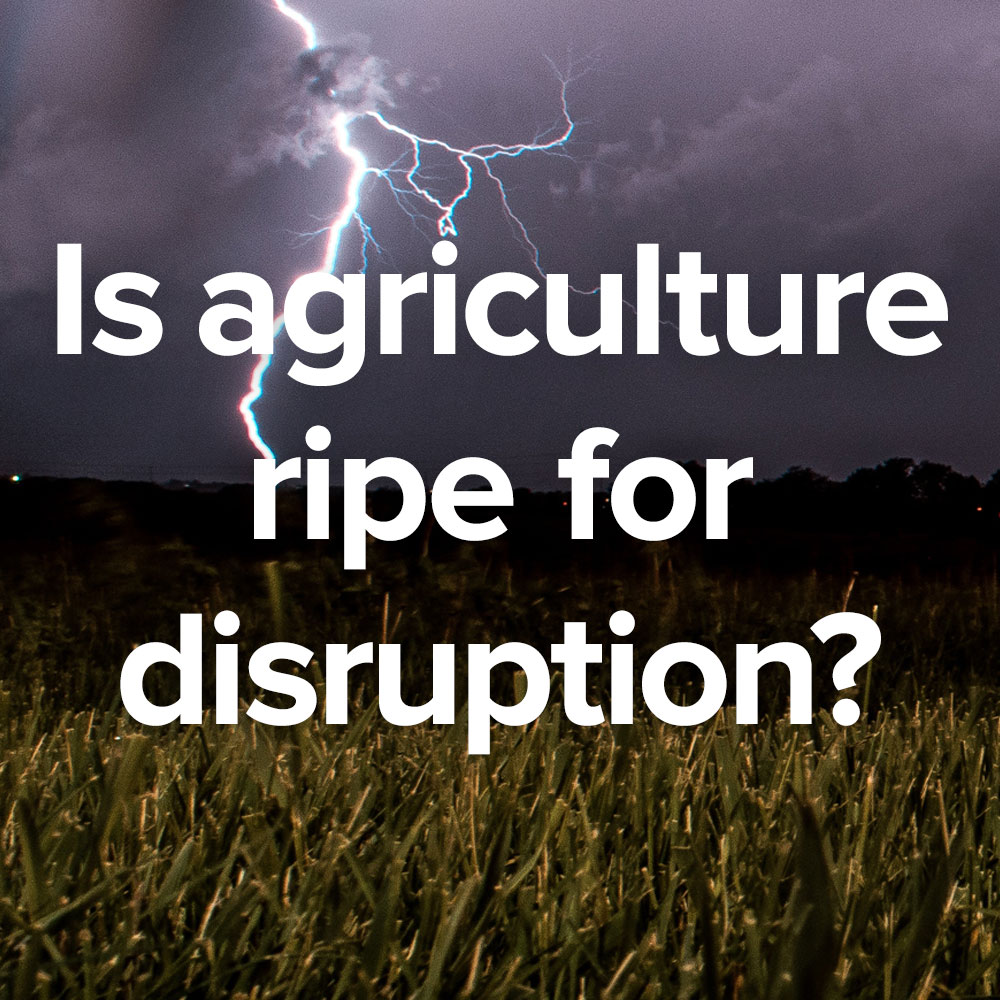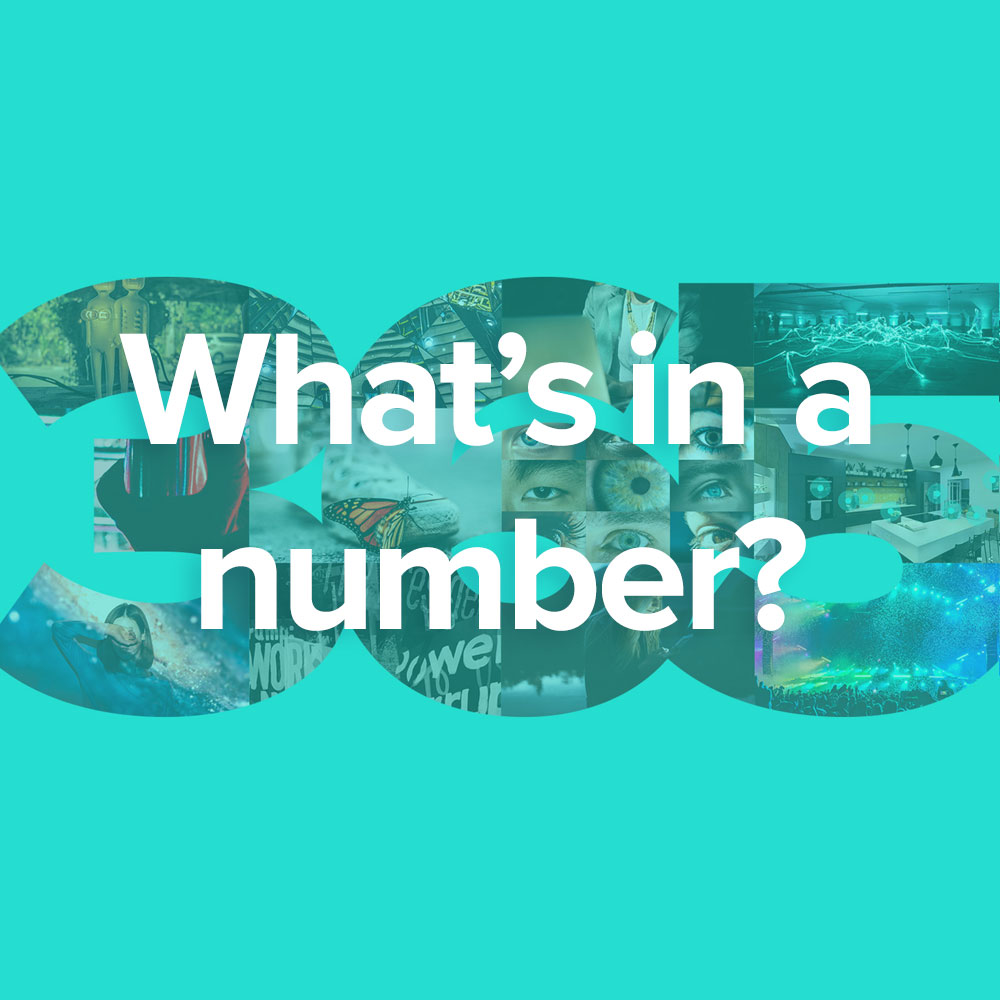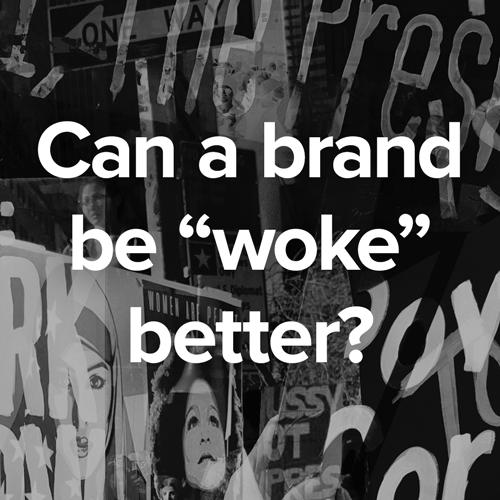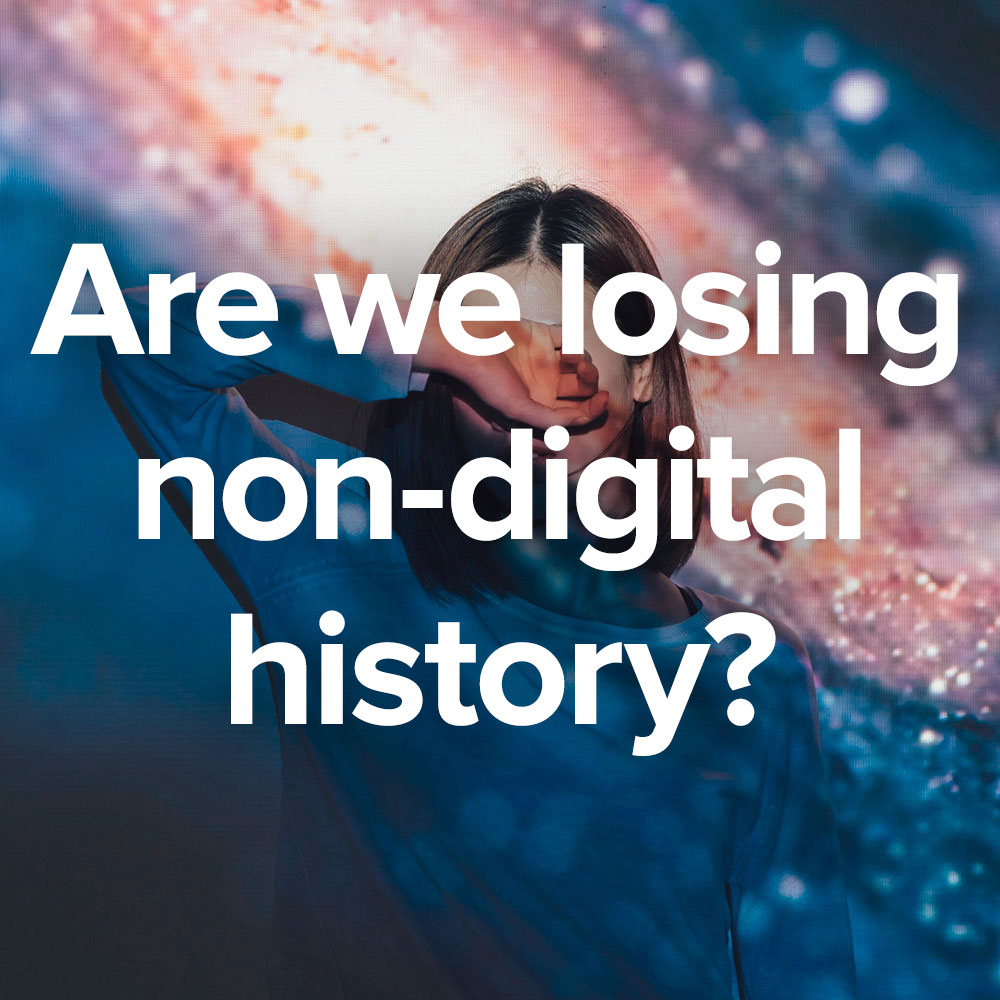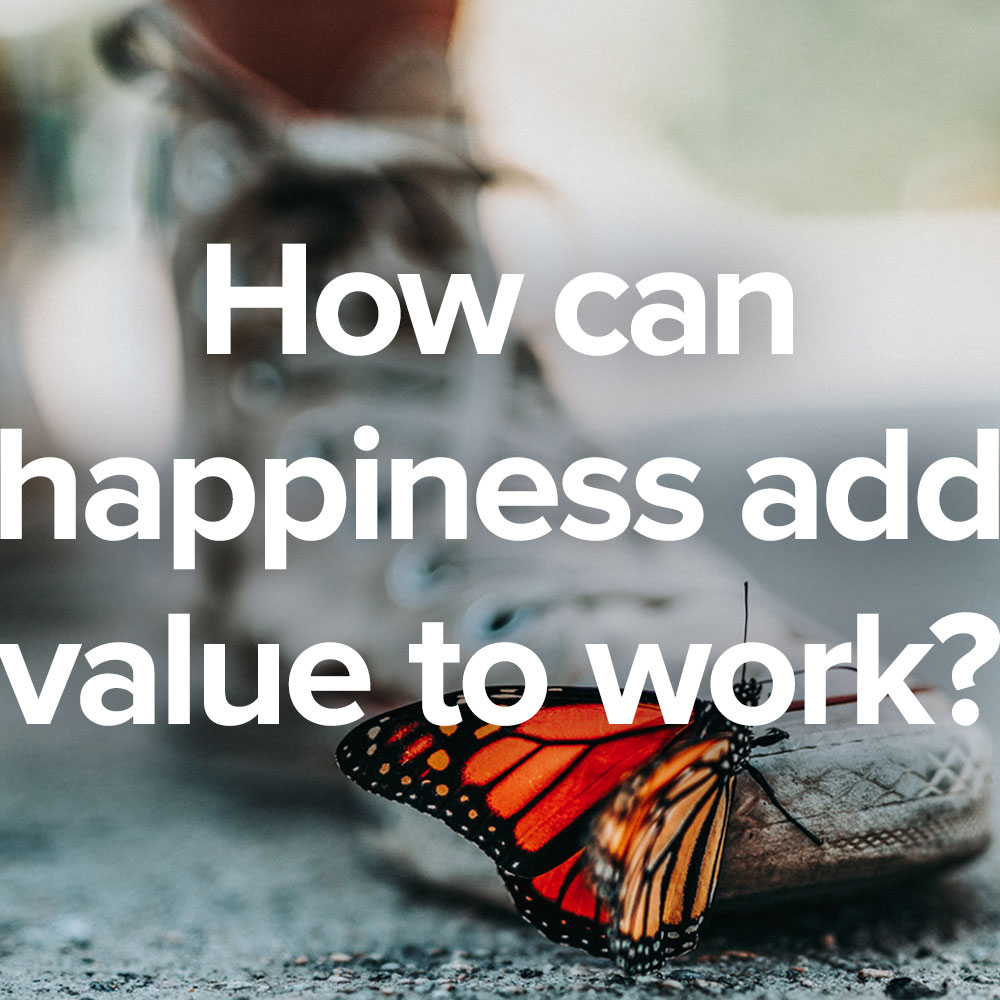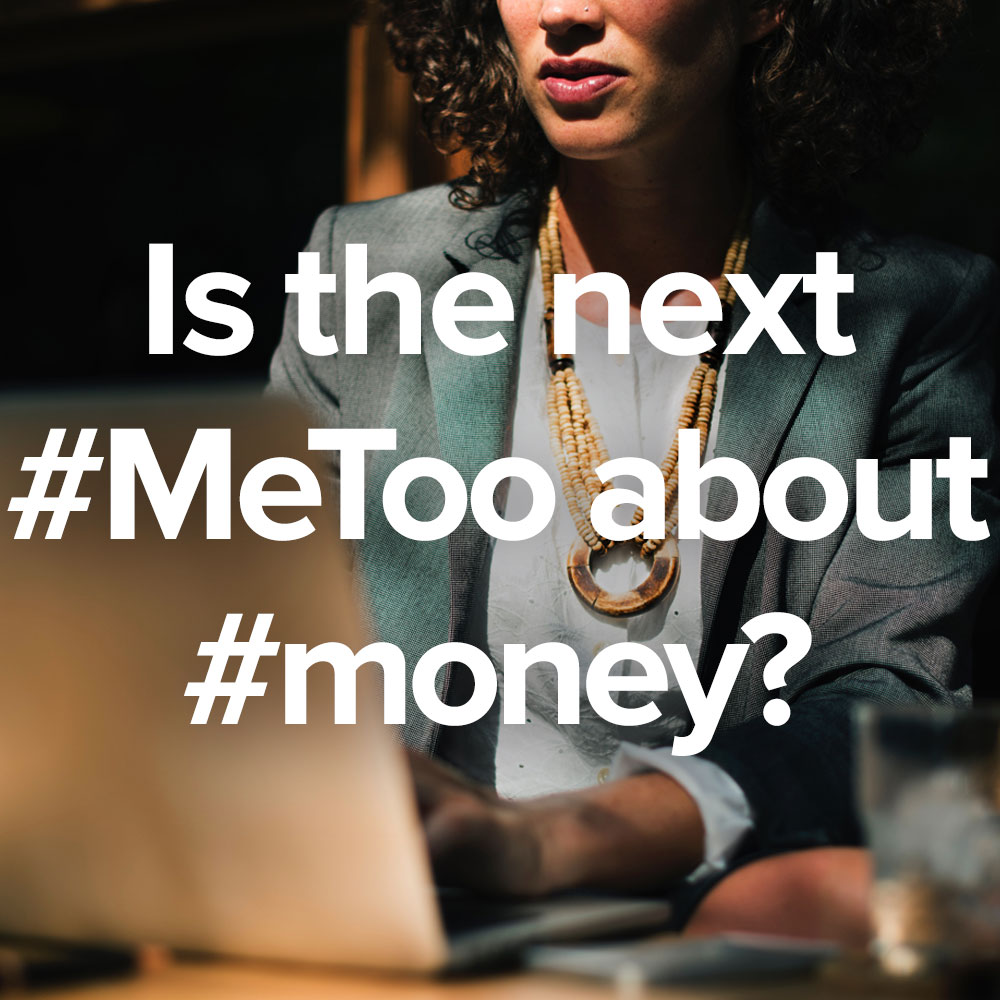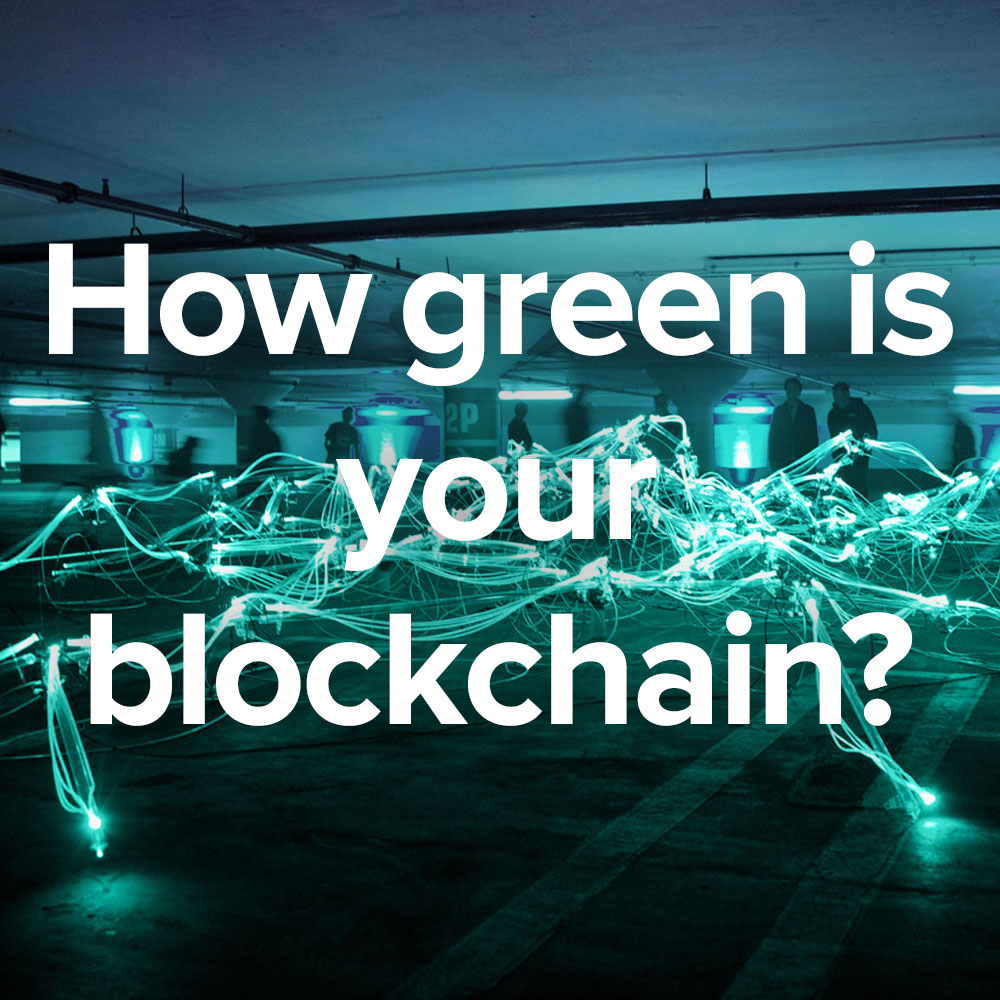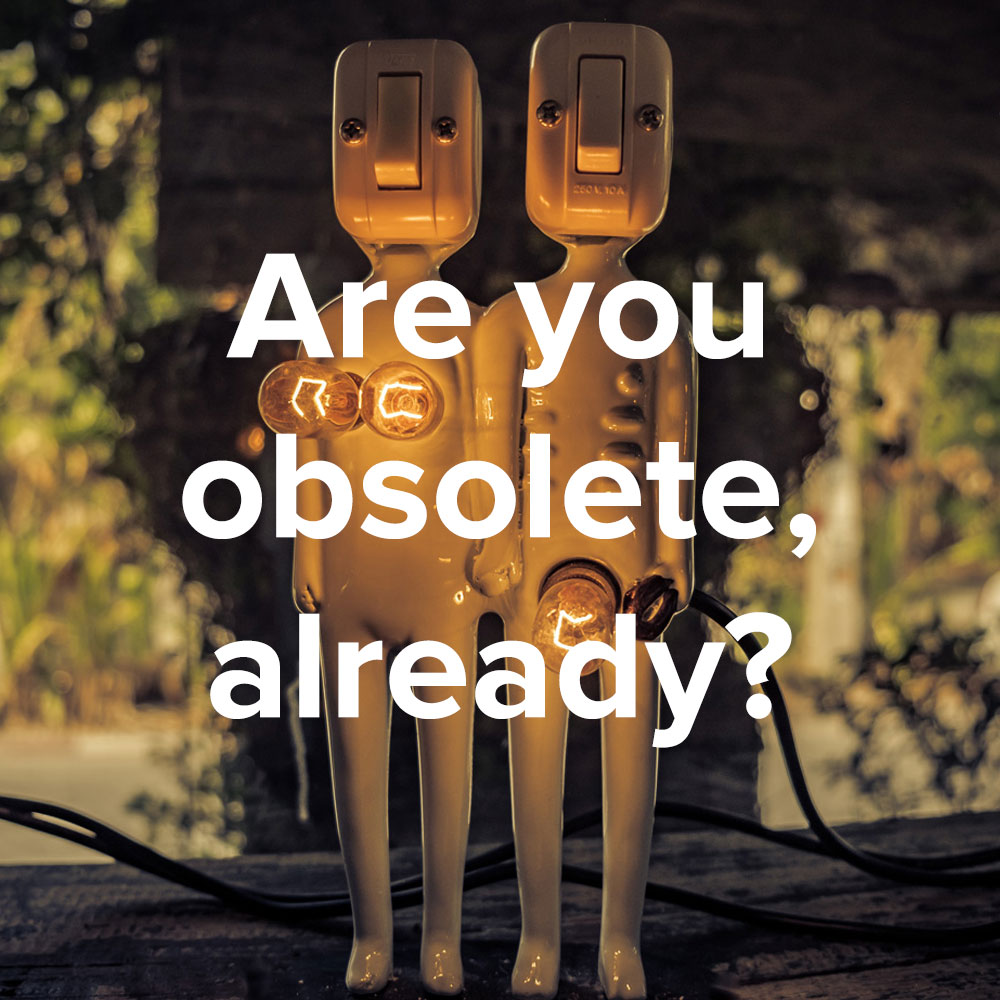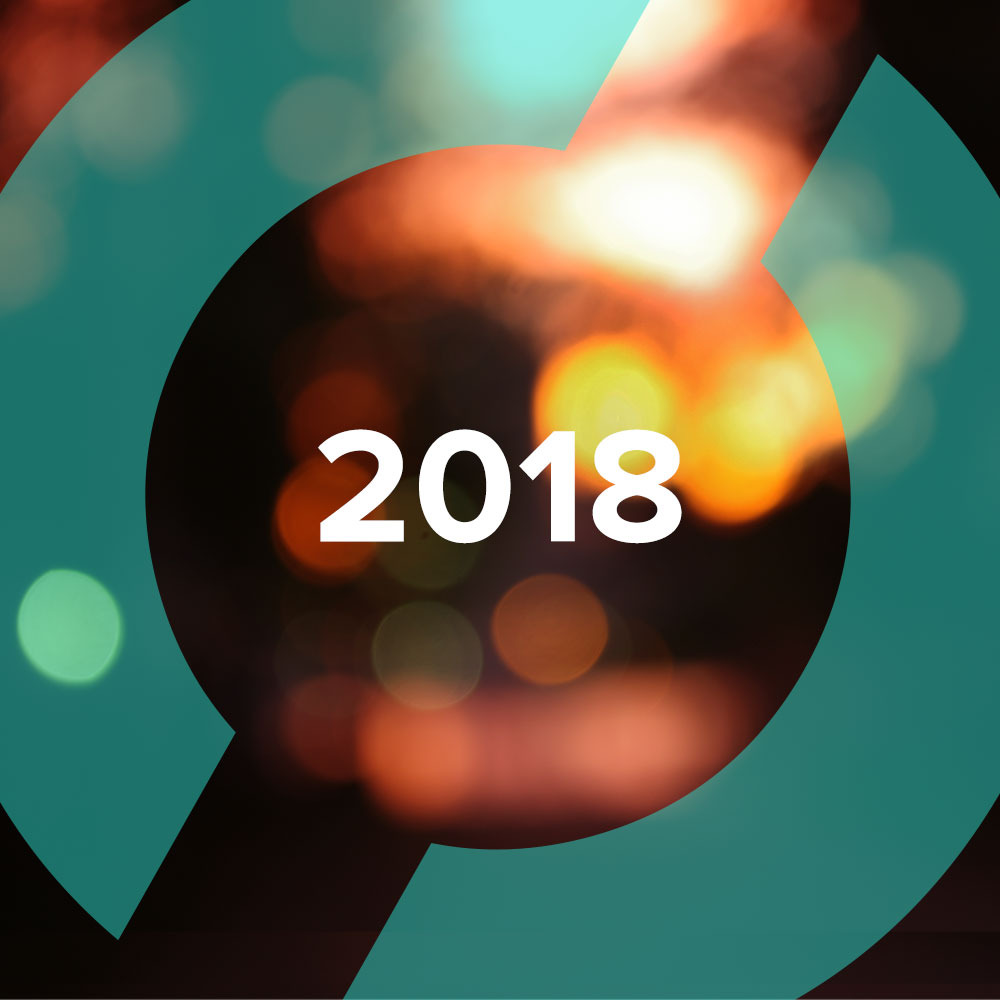“_________”
James on Unleashing Creativity.
I would rather have people start and make small steps towards happiness and towards their goals and towards, quite frankly, self-love, than continue the practice of stopping and stopping and sobbing out of fear, out of these lies that we tell ourselves.
— James Victore
MoMA Artist, Designer, Speaker and Author
— There is a school of thought in Corporate America, and perhaps in corporations everywhere, that clumping (or maybe lumping is a better word) employees together in a big room with small desks somehow leads to incredible sparks of creativity (along with savings on rent). And maybe it does—if you’re someone who doesn’t do anything creative for a living. For creatives, however, especially those who focus on words, modern office-space planning can be something akin to death. Take a walk through many of these work environments, and what you really see are people hopelessly distracted by their neighbors’ conversations, if the batteries have run out on their noise-cancelling headphones and they’ve left their chargers at home, where they’d really prefer to work. But at least their lack of productivity isn’t from doing the laundry on company time.
This disconnect is oceanic in size, and it makes one wonder how much creativity is being left behind when corporations need that energy more than ever. Winning may depend more on how you put your ideas together and communicate them to your worldwide customers than on machine learning. And that’s just the business case. There’s also the moral one: We have seemingly intractable social problems that could benefit from corporate creativity and leadership. So, whether you’re sitting in the C-Suite, the mailroom or somewhere in-between, it’s an almost-criminal development in organizational thinking.
Speaking of creatives and leaving things behind, James Victore, a legendary graphic artist, pulled up stakes a few years ago, exiting New York after a zillion years for greener pastures, deep in the heart of Texas. While based in New York, Victore succeeded at a level most of us can only dream of: two exhibits at the Museum of Modern Art, an Emmy Award. His work is in the Library of Congress, in Washington, D.C., and the Louvre in Paris. He’s been a professor, and now he's an author who teaches you how to move past your fears, obfuscations and quirky pod mates to reach your destiny, one you might not even know you have.
You live outside of Austin, Texas, somewhere, kinda rural, right?
James — Yes. North of it.
What’s that like? And how do you get creative stimulation without a whole lot of people around?
That’s the funny thing because I’ve been here, in January, it’ll be four years, and we came from Williamsburg, Brooklyn. So we came from the center, and we went all the way to the edge.
As for creative stimulation, you know, I never thought of it back then, but as I think about it now, I am my own creative stimulation. It's not like I go out and look into museums and [feed off of that] ... I never did that. I just make shit up for a living and try to play as hard as I can.
So now that you are in Texas and not Brooklyn, who are your clients? What kind of companies?
Traditionally, I’m a graphic designer. Meaning that I subsisted on a number of different clients in education, in editorial (both magazines and book publishing and some making images for illustration) and a smattering of corporate work. The Texas move has changed things because I think when you move from New York City or from Brooklyn to Texas, people think you’re dead or retired or too expensive or not interested or the list goes on. And what it's done for me, and my wife, who’s wildly creative as well, is it's really forced us to figure out how to make a living on our creativity. Because corporate for whatever reason is not coming to us, which is awesome. But we’ve also sent out a totally different vibe saying, ‘I don’t really want to do that work anymore, because I’m basically a racehorse, and creatively for corporations, I pull a cart.’
But you do have to eat.
It’s really forced us to kind of figure out how to get paid to do what we love. So a lot of what I'm doing now is taking things straight to people. No client, middleman. Making work, sending it out. We’ve got a couple of clients that we love working for. Kind of some steady, wildly creative small frys publishing in the U.K. and whatnot. But a lot of the stuff we're doing now is through workshops and teaching. Coaching.
So, the book. Feck Perfuction: Dangerous Ideas on the Business of Life. When did the book come out?
April. I think.
“I wrote this book for me. This is everything I need to know to get out of bed.”
“Your biggest fear is not spiders or sharks—it’s you. It’s the fear of expressing who you are—lest someone actually see you.”
Who did you write the book for, who was your intended audience?
You know, the very, very first interview I did was for some marketing magazine, right? And he said, “So who was your audience for this book?” And I said, “Oh, you think I’m the kind of guy who thinks about their fucking audience before I write? No, no, no, no. I'm the audience.” I wrote this book for me. This is everything I need to know to get out of bed...
... And your audience will follow. Build it, and they will come, or they won’t, and either way, it's okay.
The reception has been super warm and humbling and has been really, really great.
Have you done a book tour? Are you supposed to or how does that work?
Well, the way you’re supposed to, probably not. But yeah, I’ve been kind of around the world from, Dublin and Barcelona and Portland. A lot of big conferences, and a lot of people standing in line buying books. I don’t know if doing the book-tour thing does what we want it to. I’ve been humping as hard as I can to get the book out into the world, and I’m always writing to the publisher saying, what else? What else can I do? Tell me, tell me, tell me. I’m in it. And actually, as a side note, the book has gone well enough that the publishers agreed to January as my due date for a new manuscript for the next book.
No rest for the weary.
It's a follow-up to one of the main ideas of Feck Perfuction, which is the idea that the things that made you weird as a kid, make you great today. And my wife is the coauthor, and it's really strong. It's a really good book. I'm really looking forward to it. We're hot and horny and firing on all cylinders here.
“When we’re kids, we’re wildly creative and some dumb-ass uncle says something, or your parents say, ‘Don’t draw on the wall,’ or ‘Oh, you can’t make a living writing poetry.’ Are you f**king kidding me?”
Where do you find the time to write during your day?
Dude, I get up at 3:15 every morning.
What time do you go to sleep?
At 10. Nine. After I put the kids to bed and then ... because I got two little ones.
Okay.
But, we’re out in the middle of nowhere, kind of. So I get up at like 3:15, 3:30, put the coffee on, and I take my laptop and stuff, and I go out onto a corner of the porch, and it's just like completely dark out there. I've got a little blanket and a little camping light, and I just go, tick, tick, tick. It's so great.
And you can write it because of what you’re writing, how you're writing, you don't need research materials? It comes right off your head?
Yeah. A lot of it is some new knowledge that my wife and I have been ... well, mostly my wife, Laura, has been developing and working on what separates this new book, which tentatively is called, Hey Weirdo, from Feck Perfuction, is that there are a number of interviews in it. So it’s other voices of people who are just stellar in their career.
“I make sh*t up for a living and try to play as hard as I can.”
What kind of people?
Whether it’s a social movement or educators or people in the health industry or business, who are just completely for living their life doing what made them weird as a kid. Because what made you weird as a kid is your power source. I mean, if most people can just tap into that ... and you know, most people if you ask them, what did you do as a kid, they say, “Well, I was really playful and I liked to write and I liked to sing songs and I liked to do this.” Well, what if you got paid to do that today? Would you do that? And they’re like, “Fuck, yeah. I wouldn't be an accountant. I wouldn't be this.” And I say, well, why not? Why don't you do it?
So that power thing, what happens is, when we’re kids, we’re wildly creative and some dumb-ass uncle says something, or your parents say, “Don’t draw on the wall,” or “Oh, you well, you can’t make a living writing poetry.” Are you fucking kidding me? So it gets kind of shut down. So the whole idea of, like, weird, not versus normal, but where is this super power?
Now, tell me if I'm making a leap here, but truthfully, then, if you go into any office building, on any floor, and you've got a hundred people working there, probably 95 of them are inauthentic to themselves?
Correct. Living a life of creative frustration. Living a life that's inauthentic, with a lack of vulnerability, lack of authenticity. They don't quite frankly know who they are or what their voice is or what they're capable of professionally even. Yeah.
It sounds like that can transcend from your professional life and into your personal life as you’re describing it. What are the long-term ramifications for a person who has crossed into compromise, crossed over into a money thing and all that?
Well, I mean, as long as you don’t wake up and go, “Oh, fuck,” then it’s okay. You know what I mean?
You mean, if you never know any better.
Most people are not privy to this information. I live in Georgetown, Texas, now, man. I walk around and I see these people who gave it away such a long time ago, they have no idea. They refer to their spouses as ‘the wife,’ and there's these cliches that we’ve built up around ... these people just fill up Target and Walmart. There's a doldrums, a zombie-ism. As long as you don’t wake up from that, it’s fine.
But you know what, here’s the thing, we get a lot of people coming to us. My wife does coaching on her own. And I do work on my own, and we throw workshops here, and we invite 10 people from basically around the world to come and hang out for three days, and we mess with them and send them back. I was writing about that the other day. When we have physical access to them, we really get to know them. We invite people here, and we see through their anxiety and their fears and their self-doubt and their pain. We see through that, and we gather up all of the beauty and all of the strength and all the power that we see inside of them like field flowers, and we show it back to them, and say don’t focus on that shit, this is what you should be focusing on. This is your superpower. Pay attention to that. This is what you should be getting paid for.
Do you have an example?
Sure. I had a coaching client, and she said her husband basically would joke to her and say, “You don’t have friends, you have non-paying clients.” I read it back to her, and I said, “Hey, tell me about all these clients you have,” and she was like, “What are you talking about?” She’s like, “Oh, that’s just what I do. I’m just really good at talking to people, and I help them ease their pain and help them become more happy,” mindful. And I was like, that’s a superpower, that’s a skill. And she’s like, “Really?”
And then she walked away with a business. I just reframed it for her, and I said, “Okay, here's what you do. Here this and this and this. You’re now in business. You came here lost, and all we did was restructure that.” Most of it is just attitude and perspective.
“Feck Perfuction. Worst title in the world because you can’t say it, you can’t spell it. It is one of the core ideas of the book, and I think it’s important because it’s where we get hung up. Perfection stops us from starting because we’re not ready ... and it also stops us from finishing because ‘it’s not ready.’ But done is better than perfect.”
How did you come to the title of the book?
Feck Perfuction. Worst title in the world because you can’t say it, you can’t spell it. Everybody spells it wrong and says it wrong. It is one of the central core ideas of the book, and I think it’s important because it’s where we get hung up. Like, I can’t start a business because the economy is not good and because I’m not ready and because I don’t know what I’m doing and because, because. And those are all just bad excuses. It’s just because it’s not perfect. Perfection stops us from starting jobs and relationships because we’re not ready. When I lose 10 pounds, when I pay off my debt, when I ... and it also stops us from finishing because “it’s not ready.” But done is better than perfect.
Start a business before you’re ready? Sure. Yeah. Because you can fix everything along the way. Because I would rather have people start and make small steps towards happiness and towards their goals and towards, quite frankly, self-love, than continue the practice of stopping and stopping and sobbing out of fear, out of these lies that we tell ourselves.
Hey, how did you choose Georgetown, Texas?
My beautiful wife is from Austin. And so we have in-laws here. So we have babysitters here and we have two little kids. And this property was owned by her family for awhile and nobody lives here. So if I didn’t know how to fix toilets and work carpentry and electrical, we couldn’t live here.
You’re like not even in town.
No, we’re outside ... yeah, we’re outside the city ... we’re on 50 acres.
Any animals out other than the deer?
We’re spoiled. We’re very spoiled. Well, the deer and the stuff that naturally lives here, like turkeys and hogs and deer, fox and coyotes and that kind of stuff. We have lots of great birds.
Thank you, James, for taking time out of your creative life in Texas and sharing your secrets to fecking perfuction and helping us free our creativity.



